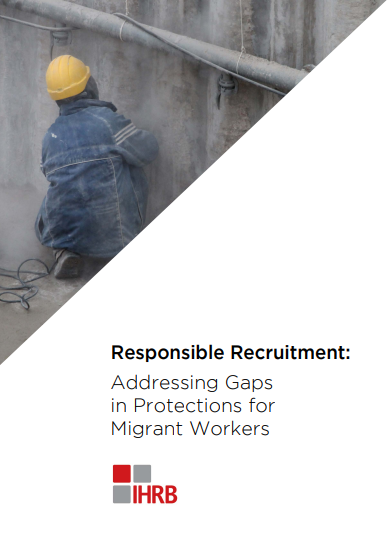This report is the second of two reports developed by IHRB in cooperation with Equidem Research & Consulting. Building on “Responsible Recruitment: Remediating Worker-Paid Recruitment Fees“, this publication offers practical guidance to businesses seeking to recruit responsibly in challenging environments.
Developed from research focusing on the recruitment process that takes low-paid migrant workers from Nepal to work in the Gulf states, this report illustrates the extent of the governance gaps that exists in transnational recruitment, making the following recommendations to businesses:
- Develop recruitment policies that adopt the ‘Employer Pays Principle‘ and require suppliers to pay the costs of recruitment directly
- Develop a pre-qualification review process for prospective suppliers that, at a minimum, reviews supplier recruitment guidelines and practices
- Establish robust screening and selection processes for key business relationships
- Include in all procurement contracts a requirement to have human rights requirements, including on responsible recruitment
- Map the various points of leverage that are available to a business to help drive more responsible recruitment practices.

